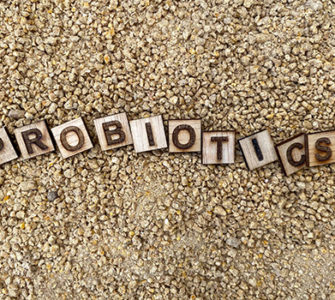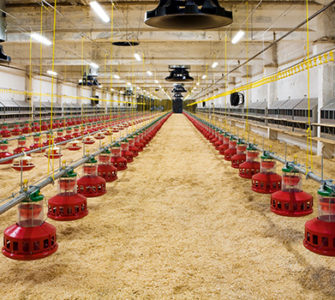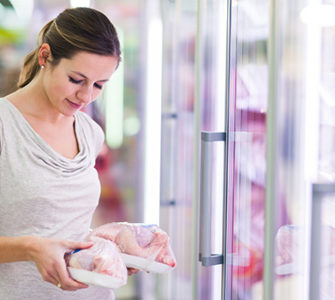Trial shows glutamine aids gut health in broilers raised without antibiotics
Glutamine has traditionally been considered a non-essential amino acid in broiler diets, but it may be more essential than first realized, Jared Oxford, a graduate research assistant at the University of Georgia, told Poultry Health Today.
In humans and other species, research has shown that glutamine is “conditionally essential” in times of stress and challenge.
“[Glutamine] is very important for highly prolific cells such as intestinal epithelial cells, T cells, B cells and macrophages,” Oxford explained. “About 30% of the glutamine in the diet is actually used in the gut itself. It’s used as a precursor in the [citric acid] cycle as well as a precursor to glutathione, which is a very important antioxidant.”
Why focus on glutamine?
With the increase in no-antibiotic-ever production, glutamine may serve as a helpful nutrient asset, particularly when birds are under stress. Oxford and his colleagues are researching glutamine and its impact on coccidiosis and necrotic enteritis.
During a coccidiosis infection, birds have to build more intestinal epithelial cells, and glutamine helps with reproduction of those cells, Oxford said, and research has confirmed the theory.
Oxford’s study incorporated three treatments: a 0% glutamine-supplementation group, used as a control; a 0.5% supplementation group; and a 1% supplementation group.
Those supplementations were added to a standard corn-soybean diet. No medications or vaccines were used in the study — researchers were only looking at glutamine.
Birds were challenged with a 20X dose of a coccidiosis vaccine at day 14 to produce a mild coccidiosis infection. Then, 7 days post-challenge, researchers collected jejunum and cecal tonsils for gene expression.
“In the cell tonsil, we looked at CD-4, CD-8 T-cell population percentages, as well as micro and gross lesions for Eimeria Acervulina, Maxima and Tenella,” Oxford said.
There was no difference in body weight, which could be due to a diet that was higher in crude protein (21%, compared to a normal diet at 21 days of about 19% crude protein), Oxford said. There was, however, a big difference in villi-site and crypt-depth ratios.
“When glutamine was supplemented, there were higher villa-site and crypt-depth ratios,” he said. “Better gut health, with lower crypt depths, means less cell turnover.”
Take-away message
In times of high stress, particularly around the 14- and 21-day marks, glutamine can help with gut health and intestinal turnover, Oxford said. Overall, glutamine might be a good insurance policy to put in diets when birds experience stress. However, a more in-depth nutritional study is necessary to see the full effect on body weight, he added.
“Our plan for future research is to look at a necrotic enteritis model. With seeing such a big difference in the tight-junction protein expression, we believe that if that translates to actual tight junctions, there will be less plasma leakage, so therefore, hopefully less necrotic enteritis in the gut,” he said.
In a future study, Oxford will look at how glutamine affects immune acquisition with coccidiosis vaccine.
Posted on July 5, 2019

















